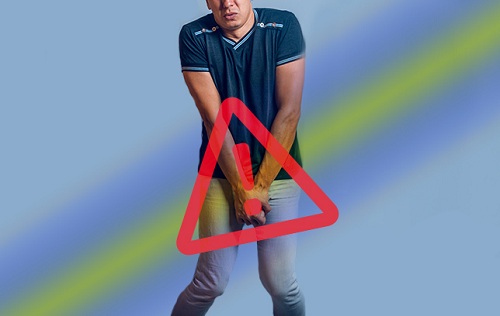The frequency of urination is the perfect way to know how hydrated your body is. So how often should you pee? Normally, you should go to the toilet around 8 times in 24 hours. If you happen to pee much more than that, it might be an indication that you drink too much water or you are taking a lot of caffeine that flushes out liquids from your body since it is diuretic. However, urinating too many times can indicate other serious problems.

How Often Should You Pee?
The question doesn’t have a definite answer. The normal urinary frequency is considered to be about seven to eight times in a day. However, people are different and thus the range for normal can be extended from four to ten times a day. The number of times you pee is generally determined by how much fluids you take, but other factors like age and medication such as high blood pressure drugs could affect the frequency.
How Often Is Too Often?
If you pee more than ten times in a day after drinking about two liters of liquids, there are chances that you have a problem with your urination frequency. Such a problem could be the result of an overactive bladder that is contracting unnecessarily, making you feel the urge to urinate more often.
When to See a Doctor
If you feel that the number of times you pee in a day is affecting your daily routine and you find no reason for the increased frequency, visit your doctor or a professional who specializes in bowel and bladder problems such as a physiotherapist or a continence nurse.
If your peeing frequency has increased and you have the following symptoms, contact your doctor as soon as possible.
- Presence of blood in urine
- Dark brown urine
- Pain when urinating
- Pain in your groin or abdomen
- Trouble urinating
- Uncontrolled urges to urinate
- Loss of bladder control
- Fever
Possible Causes of Frequent Urination
Since you are wondering about the question “how often should you pee”, you may also be curious about the causes of peeing too much in a day.
1. Diabetes
Increase in urination frequency can be an indication of type 1 and 2 diabetes. This is due to the fact that the body is trying to expel unused glucose through urine.
2. Pregnancy
As soon as you get pregnant, the uterus increases in size and puts pressure on the bladder, which results in stronger urge to urinate and increased frequency in urination.
3. Prostate Problems
When the prostate enlarges, it puts pressure on the urethra, causing the walls of the bladder to become irritable. As a result, the bladder contracts even when there is only small amount of urine.
4. Use of Diuretic
If you are on drugs that cause water to be flashed out of the body, peeing frequency can increase. Drugs that treat high blood pressure have the same effect.
5. Stroke
Problems of the nerves can lead to bladder malfunction like increase in frequency or sudden urges to pee.
6. Overactive Bladder
An over-reactive bladder sends you to the washroom even though there is no urine during the day and at night.
7. Urinary Tract Infection
Inflammation can occur in the lining of the urethra due to an infection. This causes irritation in the walls of the bladder which in turn increases the urge to urinate.
8. Other Possible Causes
Other causes of the increase in urination frequency are excessive fluid intake, caffeine drinks like soda, coffee and green tea, alcohol, ration treatment affecting the lower abdomen or pelvis, bladder cancer and dysfunction as well as aging.
How to Treat Frequent Urination
After knowing the answer to how often should you pee, you might be interested in knowing what to do if urinate too frequently.
1. Bladder Retraining
Retraining is very helpful if you have an over-reactive bladder. You are required to hold urine for a longer time than you usually do. Increase the interval for a period of 12 weeks. This helps the bladder to hold urine longer and thus reduces the frequency of urination.
2. Kegel Exercises
These exercises involve contacting and releasing the pelvic floor muscles. When you are urinating, stop voluntarily then restart the flow again to engage these muscles. Once these muscles are toned, you are able to reduce the urinating frequency. Below is a video guide on how to do kegel exercises effectively:
3. Modify Your Diet
Reduce the intake of foods that irritate the bladder or are diuretic like caffeine, carbonated drinks, alcohol, tomato based products, chocolate, spicy foods and artificial sweeteners.
4. Monitor Fluid Intake
Drink enough fluids to keep you hydrated and prevent constipation, but don’t over-do it. Before going to bed, take as little fluids as possible to reduce nighttime urination.
5. Take Medication
Medication can be used to treat frequent urination. Drugs like solifenacin (Vesicare), oxybutynin (Ditropan), mirabegron (Myrbetriq), trospium extended-release (Sanctura XR), darifenacin (Enablex), imipramine (Tofranil), oxybutynin skin patch (Oxytrol), and tolterodine extended-release (Detrol LA) can help.
6. Surgery
There are different types of surgery available. The least invasive one is the implantation of small nerve stimulators under the skin. The devices can stimulate pelvic floor and influence contractions in the muscles and organs.
